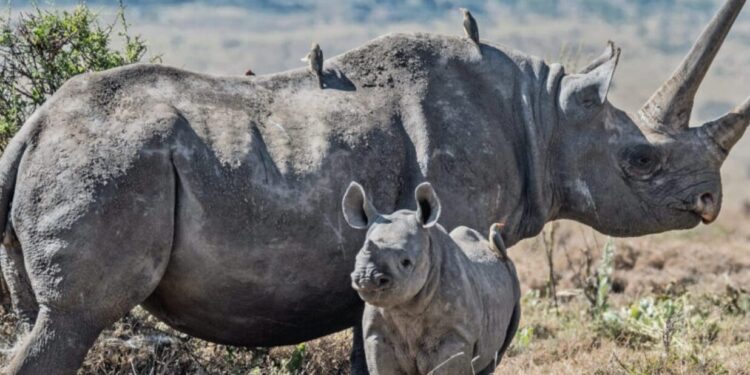The Ministry of Tourism and Wildlife, alongside the Kenya Wildlife Service (KWS), has initiated a rhino ear-notching and transmitter fitting program within Tsavo West’s Intensive Protection Zone (IPZ). This program aims to enhance rhino tracking and protection across challenging terrains, strengthening Kenya’s conservation efforts.

Cabinet Secretary for Tourism and Wildlife, Rebecca Miano, reaffirmed the nation’s commitment to species conservation, stating that the program underscores Kenya’s dedication to safeguarding the African black rhinoceros for future generations. Kenya’s rhino population now totals 1,977, comprising 1,004 black rhinos, 971 southern white rhinos, and the two remaining northern white rhinos.
A key site for this initiative is Tsavo West National Park, home to 178 black rhinos, including 143 residing in the Ngulia Rhino Sanctuary. As part of the program, 20–25 rhinos will receive transmitters and unique ear notches, enabling more effective monitoring and protection.
KWS Director General, Prof. Erustus Kanga, emphasized the importance of this initiative in achieving conservation goals outlined in the Black Rhino Action Plan (2022–2026) and the White Rhino Conservation and Management Plan (2021–2025). He highlighted that LoRaWAN-enabled tracking devices will provide real-time data on rhino movements, critical for effective conservation and population management.
The ear-notching process assigns each rhino a unique identifier for tracking health and behavior, while transmitters gather movement data to guide informed conservation strategies. This initiative also aligns with Kenya’s role in advancing global biodiversity objectives and fostering sustainable livelihoods for communities coexisting with wildlife.
CS Miano called on media and stakeholders to champion Kenya’s conservation mission, noting that these efforts go beyond wildlife preservation—they secure the nation’s heritage and ensure a sustainable future for all.
Kenyan Business Feed is the top Kenyan Business Blog. We share news from Kenya and across the region. To contact us with any alert, please email us to [email protected]












